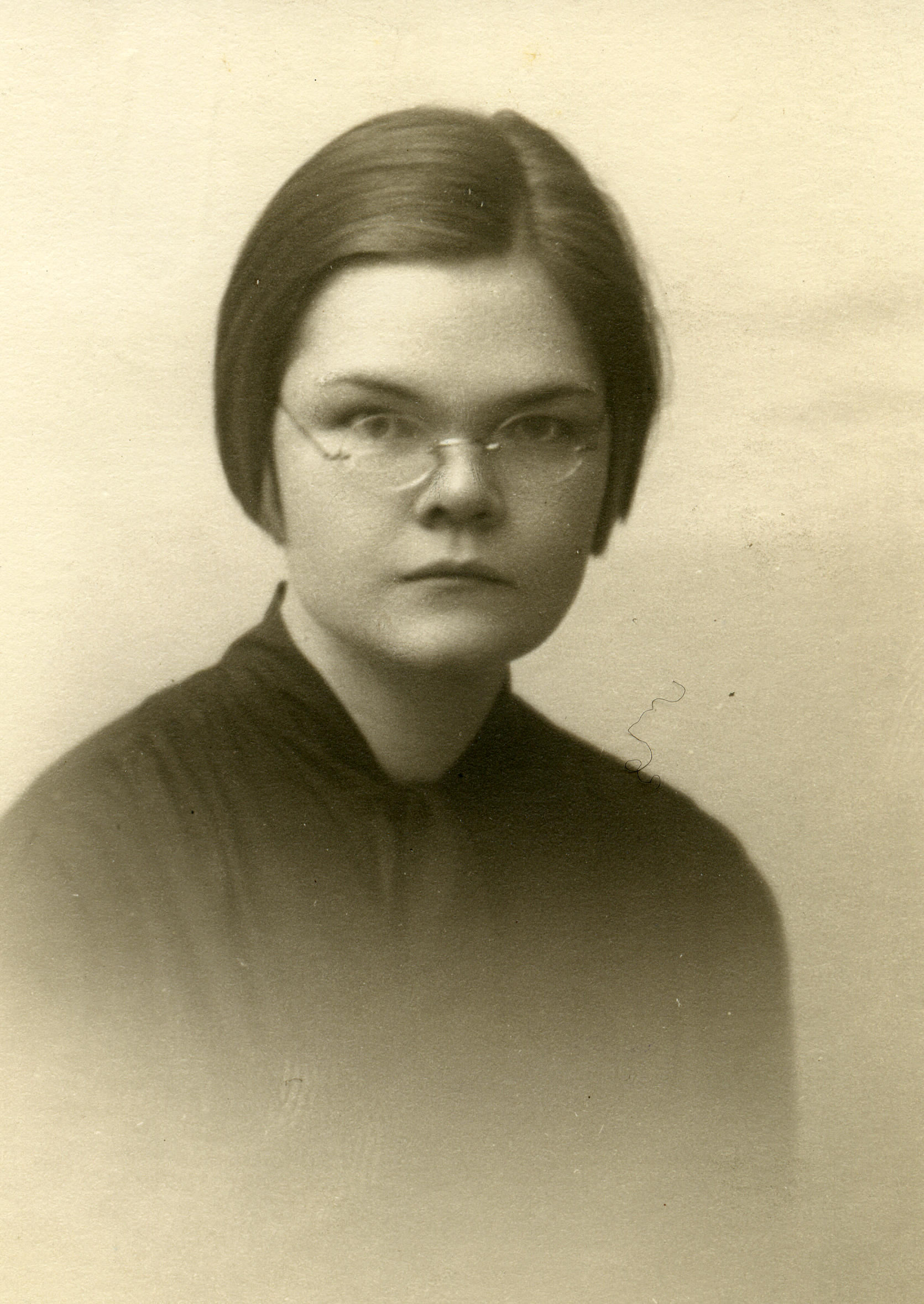
Reed Morn
Reed Morn (born Frieda Johanna Drewerk, 19. VIII 1898 – 17. X 1978) was an Estonian prose writer who used her works to paint deep psychological portraits of independent, strong and intellectual people, who were mostly women.
Frieda Drewerk was born to a working-class family and was mostly raised by her mother in relatively poor economic conditions. Despite this, Drewerk could attend good schools in Tallinn and studied from 1916-1918 at Lender Private Gymnasium; in 1918, at Russian Gymnasium and graduated from the Tallinn V Gymnasium for Girls in 1919. Drewerk excelled at school and in 1919, entered the University of Tartu where she studied literary history, philosophy and Romanic philology. She graduated university in 1924 with a master’s degree. In 1921, she began publishing articles on literature. From 1924-1926, she worked as a teacher of Estonian language and literature at Paide Gymnasium; in 1929, taught Latin at Tallinn I Gymnasium for Girls and at Kaarli Private Gymnasium from 1929-1932. After that, she remained a freelancer and occasionally gave private lessons as well.
Drewerk spent the years 1932-1933 in Paris on a scholarship from the French Scientific Institute of Tartu. In 1933, she spent three months in Spain and in 1937, she visited Italy. She also published travelogues in various Estonian publications. In 1944, she fled to Germany. She spent ten months interned in the so-called Czech Hell. From 1946-1952, she lived in Germany and in 1950, for a while also in Sweden. In 1952, she emigrated to New York where she worked either odd jobs, as a typist or was unemployed. In 1957, she relocated to Los Angeles where she retired and lived until her death.
Frieda Drewerk spent her life shying away from the public eye and social interactions, she never joined the Estonian Writers’ Union. When communicating, she preferred writing. She never started a family, lived austerely and in her many volumes of letters, expressed readiness to dedicate her life to creation and intellectual pursuits.
In 1927, her debut novel Andekas parasiit (‘The Talented Parasite’) was published under the pseudonym Reed Morn. The novel won II place at a novel competition (while competing against August Jakobson, Betti Alver and Mart Raud) and was praised by critics. In Estonian literature, the work was novel in a sense that it depicted the development of an educated, intellectual and individualistic woman who is intimidated by the material and practical side of life. ‘The Talented Parasite’ is modernist in style and the subject-matter fairly autobiographical. The novel has remained Morn’s most well-known work.
In 1929, her second novel Kastreerit elu (‘Castrated Life’) was released, which depicts a psychologically similar main character as the one from her first novel, only this time a man. The novel is written in the form of a diary by Andreas Orpus who is in jail after having killed an aggressive hotel owner who was beating his wife. ‘Castrated Life’ is more realistic compared to her debut novel and its content less pessimistic. The novel was not received as well and did not become as popular as ‘The Talented Parasite’, yet several critics consider it superior to the debut novel.
In 1929, Morn published in the journal Looming her first short story Prints (‘Prince’), the character of which is also similar to the main characters of her two novels. Morn wrote and published stories later as well, before the war mostly at Looming. However, her short story collection Andke keisrile mis keisri ja Jumalale mis Jumala (‘Render unto Caesar the things that are Caesar’s, and unto God the things that are God’s’) was published as late as 2009 in the series Eesti novellivara (‘Estonian Short Story Collections’).
After the war, Reed Morn continued writing for the magazine Mana, yet many of her short stories and even the novel Märgit hing (‘Marked Soul’) remained unpublished. In 1956, her novel Tee ja tõde (‘Path and Truth’) was released. The first draft of the novel was already ready in 1936 and literary scholar Rutt Hinrikus considers it to be Morn’s most important work. The main character of ‘Path and Truth’ is similar to the one from Morn’s earlier works, but the style of the novel is more colloquial, attitude more optimistic and the tone accepting of one’s life fate, whatever it may be. The novel expresses concern over modern man having forgotten that he is made in the image of God. When Morn’s pre-war work reflects the author’s self-image as a Christian, then ‘Path and Truth’ expresses a noticeable interest in Buddhism and Indian philosophy.
Frieda Drewerk was also a translator before the war, translating from Russian, Spanish and French, as a result of which, the novel Sappho by Alphonse Daudet was published. Both before and after the war, she wrote several articles on the great figures in world culture and literature, including also authors who are relatively unknown in Estonian culture such as Miguel de Unamuno or Rubén Dario, a Nicaraguan poet and founder of Spanish-language modernism.
S. V. (Translated by A. S.)
Books in Estonian
Novels
Andekas parasiit. Tartu: Loodus, 1927, 281 lk. [2. trükk: Tallinn: Eesti Raamat, 2008, 175 lk.]
Kastreerit elu. Tartu: Loodus, 1929, 227 lk.
Friida Dreverk, Tee ja tõde. Toronto: Orto, 1956, 317 lk. [2. trükk: Tallinn: Eesti Raamat, 2002, 295 lk.]
Short stories
Andke keisrile mis keisri ja Jumalale mis Jumala. Koostanud Maire Liivamets. Tallinn: Eesti Raamat, 2009, 250 lk. [Sari ‘Eesti novellivara’.]
Non-fiction
Frieda Drewerk, Jeanne d’Arc: Prantsusmaa rahvuskangelane. Tartu: Eesti Kirjanduse Selts, 1935, 149 lk.



